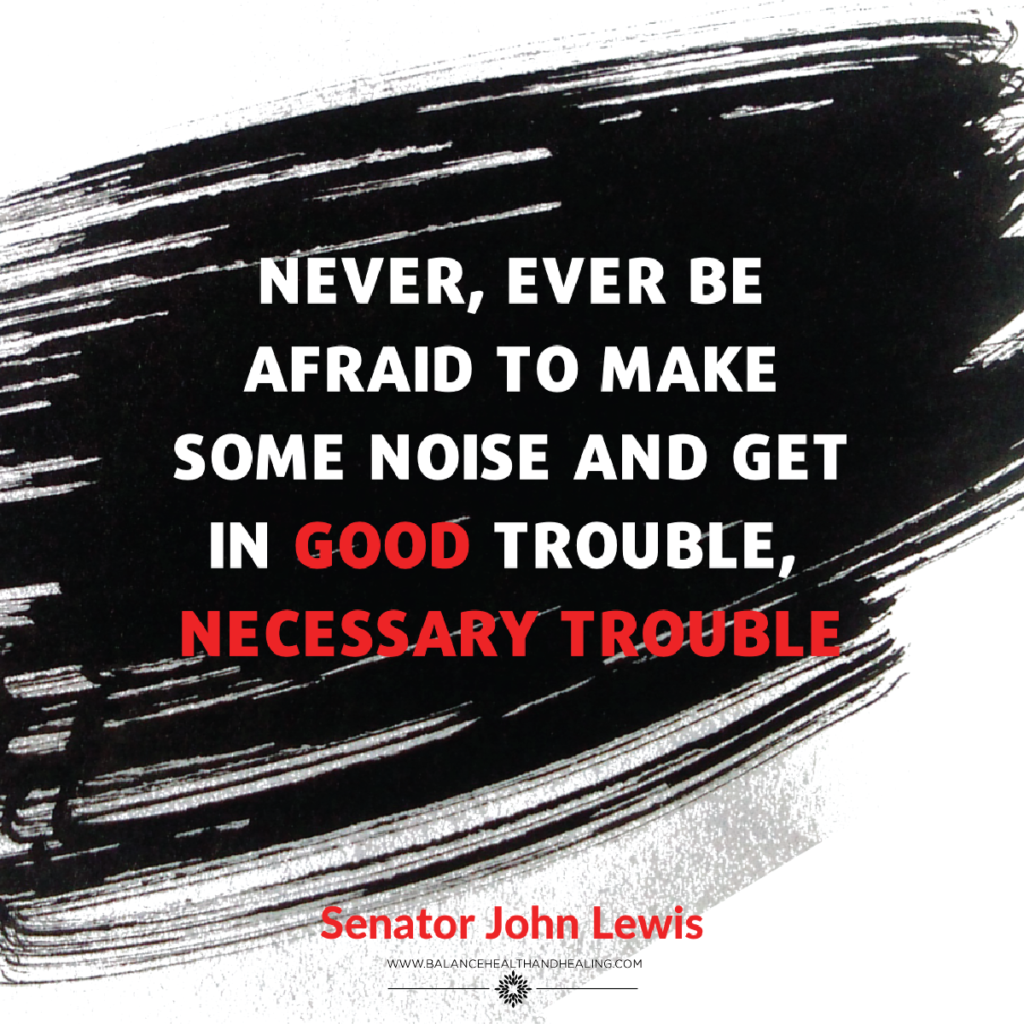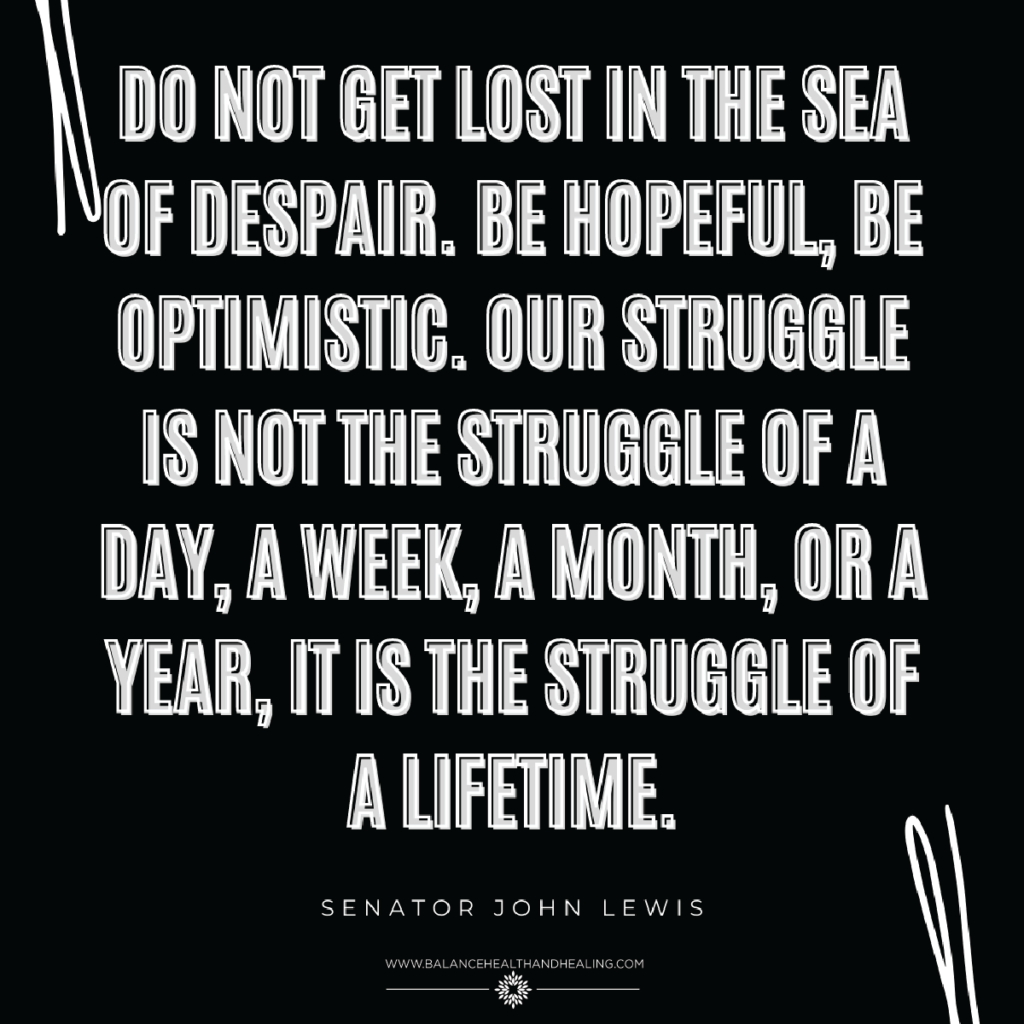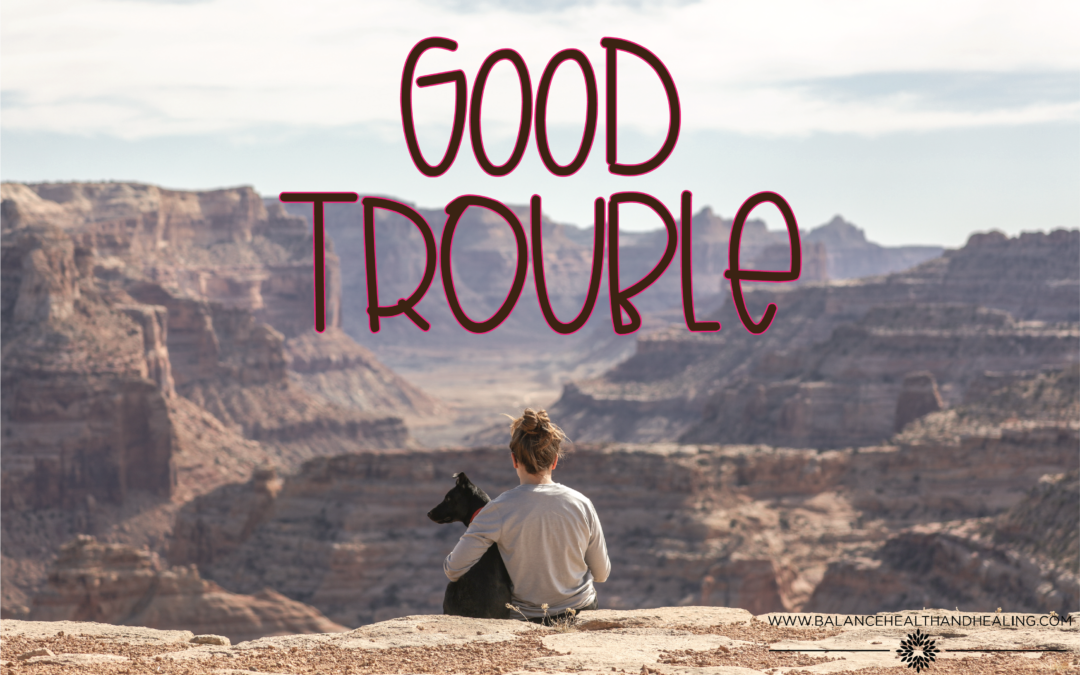Good Trouble in a Classroom Setting
Happy Black History month! Along with working with clients at Balance Health and Healing, I also teach a class at BYU called Cross-Cultural Families and Human Development. It is a class focused on race, ethnicity, families across the world, privilege, socioeconomic status, gender, etc. I am very passionate about this class and the way it added to my own education when I took it in my undergraduate career. It is an honor to be back in the classroom on the other end of things. I love the opportunity I have to help students navigate difficult topics with compassion, understanding, and research.
 This winter is my third semester teaching the class. During one of my previous semesters, I had a student who disagreed with much of the material. She was very openly vocal and often told me I was wrong in front of the class. As a therapist, I naturally tried to take a compassionate stance while helping her to understand and interpret research. Much to my chagrin, she ended up being very dissatisfied with the class and it reflected in her final course ratings. I was initially devastated. I had spent time nurturing her education, having conversations with her after class about material, and seeking to understand her perspective. Why did the end of the semester review reflect so poorly on my efforts?
This winter is my third semester teaching the class. During one of my previous semesters, I had a student who disagreed with much of the material. She was very openly vocal and often told me I was wrong in front of the class. As a therapist, I naturally tried to take a compassionate stance while helping her to understand and interpret research. Much to my chagrin, she ended up being very dissatisfied with the class and it reflected in her final course ratings. I was initially devastated. I had spent time nurturing her education, having conversations with her after class about material, and seeking to understand her perspective. Why did the end of the semester review reflect so poorly on my efforts?
I talked about this with a dear mentor and someone integral to my understanding of race. I expressed to him how sad I was at the painful and harsh rating. He reminded me of John Lewis, a pivotal Civil Rights Activist, who frequently spoke of creating “good trouble.” He meant that it was important, and necessary, to stand up for the things that mattered, whether others appreciated or understood your message. Senator Lewis is quoted in saying: “Do not get lost in the sea of despair. Be hopeful, be optimistic. Our struggle is not the struggle of a day, a week, a month, or a year, it is the struggle of a lifetime. Never, ever be afraid to make some noise and get in good trouble, necessary trouble.”
Good Trouble + Eating Recovery
I sometimes feel like being in the eating recovery world requires me to get into a lot of “good trouble.” This is sometimes hard for someone who historically does not like to “ruffle feathers.” However, Senator Lewis inspires me to work harder to be an advocate in whatever my sphere, whether that gets me into trouble or not. Eating recovery is one of those areas that I have realized it is important to for me to work harder to get into “good trouble.” As a therapist who focuses mostly on eating disorders, I cannot sit by and be silent. Advocacy against the diet industry, media, skewed social beliefs, etc. necessarily involves “good trouble.”
John Lewis helps us understand some main ways we can use our voices to get into “good trouble.” This was originally discussed in advocating for equality in race but can also be applied to any important issue.
Focus on what you can do versus what you can’t
Changing a diet-culture and weight-centric world is no joke. It’s hard to know how to tackle a billion-dollar industry and deeply internalized ideas as just one person. The fact of the matter is that we do not have to take on changing the world and creating “good trouble” on our own. I always tell my class that it’s important for them to discover their role in advocacy and work within their spheres of influence. This is true for creating “good trouble” as advocates for eating recovery as well. Although we cannot change everything on our own, we can do what we can where we can. Perhaps this is in teaching our kids, setting boundaries with our family members, helping create policy, working in helping professions, using inclusive language, advocating for size diversity and inclusivity, etc.
of the matter is that we do not have to take on changing the world and creating “good trouble” on our own. I always tell my class that it’s important for them to discover their role in advocacy and work within their spheres of influence. This is true for creating “good trouble” as advocates for eating recovery as well. Although we cannot change everything on our own, we can do what we can where we can. Perhaps this is in teaching our kids, setting boundaries with our family members, helping create policy, working in helping professions, using inclusive language, advocating for size diversity and inclusivity, etc.
Persist!
When it comes to being an ally or advocate in any situation, it will require persistence. Eating recovery is no exception. The culture that tells individuals that they are not enough based on their body is not easily changed. Once we are able to find our voice and our role in creating change, we must persist!
Be optimistic about the future
I believe that our world is changing! Part of creating “good trouble” means believing that things will get better because of it! We must be optimistic about the prospect that our efforts are actually making a difference. I know that the work we do is creating a safer world for people in all bodies and holding onto hope is not a naïve thing, it actually enables us to move forward and continue to stir up “good trouble.”

